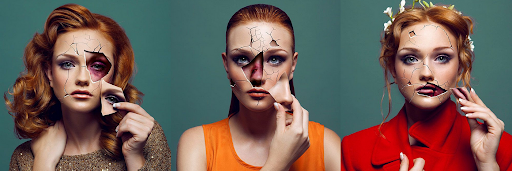As everyone knows, we are currently living in a capitalist society and alarmingly, more and more people, especially young adults are encouraged to spend money to look a certain way and “fit in” in our society today. According to Kim Kelly, a freelance journalist at Teen Vogue, defines capitalism as an economic system in which a country’s trade, industry, and profits are controlled by private companies, instead of by the people whose time and labor powers those companies. One of the problems with capitalism is that corporations prey on people’s insecurities to make profit. They do this by convincing consumers to spend money on products marketed as solutions to the insecurities foisted on consumers by the corporations themselves. Products are marketed as though they provide a “fix” required to make consumers look good. This issue affects everyone but it predominantly impacts younger people and especially women.
We live in a society that glamorizes western beauty standards, which dominate the corporate media (including social media), and thus dominate the minds of people from a young age. More and more young people – especially women – are pressured to conform to these unrealistic standards, such as having a thin flat stomach, tiny waist and thigh gaps. These toxic expectations lead to a dangerous phenomenon known as body dysmorphia, a mental health condition characterized by one spending a lot of time worrying about flaws in their appearance. Usually, these perceived flaws are unnoticeable to others, but are amplified as an “ugly” feature in the mind of the person suffering from dysmorphia.
Influencer culture within social media has created a further pressure on teens to conform to these unhealthy standards. Social media algorithms lead young people to watch influencer videos that instruct them to adopt dangerously inadequate diets (“what I eat in a day to stay skinny” and “how to achieve weight loss in 2 weeks” videos). Influencers commonly advertise bogus products such as “skinny supplements,” as well as unrealistic workout plans. Such content leads people to fear changes in their body and label natural features as “flaws.”.
With more and more people being influenced by trends and society’s standards, they will more likely feel inclined to purchase products that can make them feel better about themselves, fix the “flaws” and feel validated by society in return. Capitalism exploits people’s vulnerability by further emphasizing that the products that companies sell and promote are for the betterment of their insecurity and that without the products, their “flaws” will remain as “flaws”. Convincing them to see certain bodily features as something to fix. However, this is what pushes people to count calories, develop fear foods, and fall into disordered eating, commonly in a restrictive under-eating pattern. This not only harms their psychological and mental health, but it also jeopardizes their physical health. Putting them more at risk for serious health complications as their immune system weakens from not receiving adequate nutrients and calories that their body needs to function. Furthermore, it occupies and consumes their minds with the amount of food intake, extreme “need” to burn calories, and avoid “bad” foods.
To address these social problems, it is important to overcome the dominance of western beauty standards. It is simply toxic and unrealistic to enforce one type of “beauty” expectations on everyone. The change happens when we start resisting these standards and start to accept and love ourselves. Embracing our differences, changes in our body and unique features helps with how we see value in ourselves. Comparing ourselves to others and resorting to products that capitalism claims to make us feel better won’t cure our concerns. Listening to our body is the most important thing to ever follow. It is crucial that we don’t fall under society’s toxic standards. We should instead see our bodies as our own temple and not as something that needs to be “fixed”.
